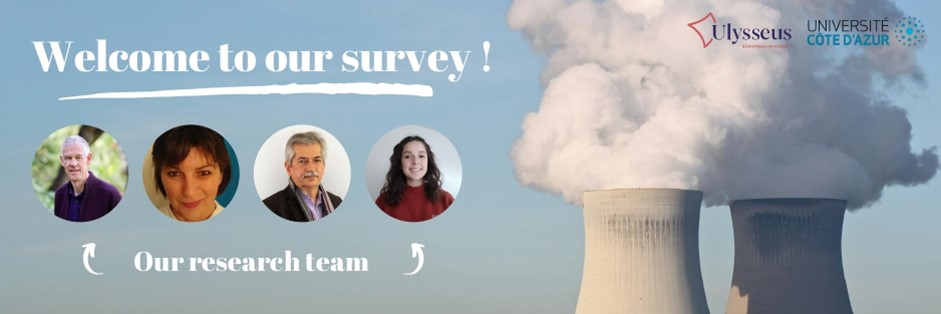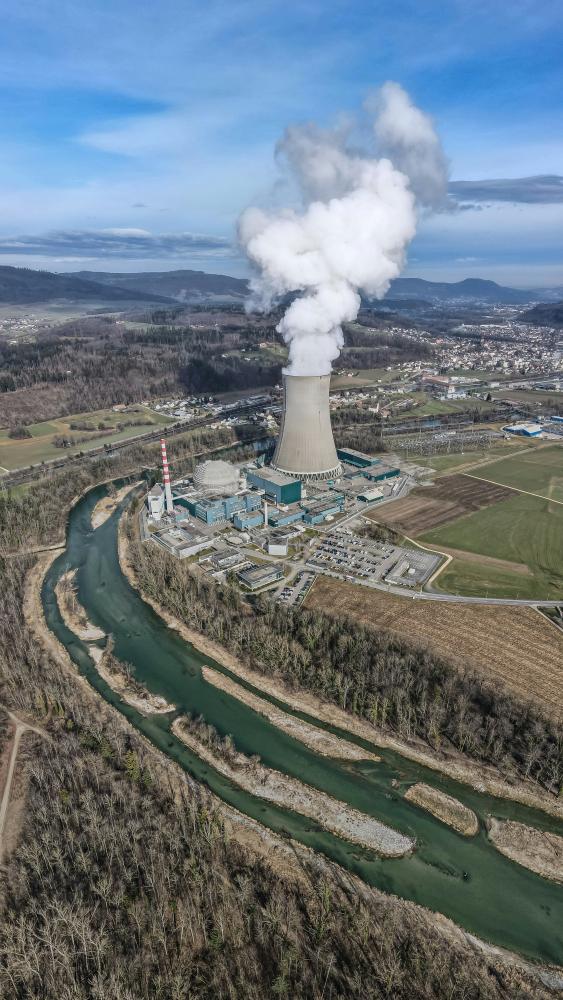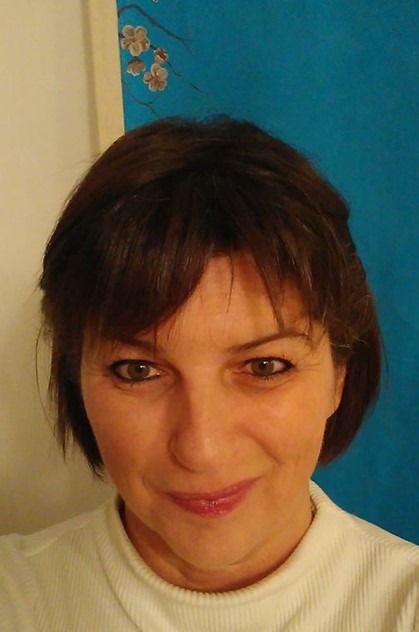Academy of Excellence "Territories, Environments, Risks and Resilience"
Nuclear risk and radio-isotopes, from public perception to new policies
- S. PEREZ -
How do European students really feel about nuclear power?

Academy Highlight
Nuclear power could play a key role in replacing fossil fuels and becoming part of the future energy mix. But the desirability of nuclear power is perceived differently in different countries. This project focuses on the perception of nuclear risk by university students as this important societal question regarding “challenges related to energy” is less studied than other risks.
The project
In an effort to reduce greenhouse gas (GHG) emissions, many countries around the world are planning to shift to more sustainable forms of energy. Nuclear energy is expected to play a key role in replacing fossil fuels, or at least to be an essential option in the future energy mix. However, the use of nuclear power is controversial among younger people, who prefer the development of solar and wind power. Assessing young people's perception of nuclear risk is the subject of the NR2P3 project: "Nuclear Risk and Radioisotopes, from Public Perception to New Policies." While a previous survey (NR2P2) focused on two target populations, experts vs. non-experts, in this new survey a single social group was selected: students who responded to a questionnaire sent to the Ulysseus network of universities. While information is readily available about the different energy policies pursued at international level, less is known about how they are perceived by the general public. The initial fieldwork for this study was carried out in eight European countries: Austria, Finland, France, Germany, Italy, Montenegro, Slovenia and Spain. The questionnaire did not achieve the desired level of representativeness for some countries. Nevertheless, it allowed us to explore the different energy contexts, which was an important part of our study. We received 1,015 incomplete responses and 726 complete responses, and decided to focus only on the latter. The first argument in favor of nuclear power (53.4%) concerned the climate and the fact that nuclear power is a low-carbon energy and therefore necessary to combat greenhouse gas emissions. Arguments against the development of nuclear power focused on the concept of risk and the problem of radioactive waste, which were highlighted in the responses, together with the more recent argument that it is impossible to continue to produce nuclear power in a world with an increasingly uncertain climate (the issue of reactor cooling). In terms of perceived nuclear risks, the nuclear threat came first (380 students). The current geopolitical context, notably Russia's war in Ukraine, might have influenced this perception. Overall, the responses show a desire for citizen participation in energy decision-making. All the responses reflected the students’ interest in participating in the nuclear debate.

The +
Although surveys on the perception of nuclear risk are not new, it remains important to understand the similarities and differences in European students' perceptions of nuclear risk. This gives us a better understanding of the variability due notably to each country’s national energy policies and its geopolitical context.
What's next ?
The next step is to ensure a better representation of European universities to obtain a more representative panel of students. The questionnaire should be redistributed to the Ulysseus university network.
Project informations
| Scientific field: Social Sciences, Energy |
Keywords: Nuclear Risk Perception European universities |
| Partner laboratories:
ESPACE - Université Côte d’Azur, CNRS, AMU, AU
ICN - Université Côte d’Azur, CNRS TIRO-MATOs - Université Côte d’Azur, CEA International collaboration: |
Budget: €7,000 from Academy 3 |
| Project members: Sandra Perez Christophe Den Auwer Georges Carle: |
Students involved: Solène Lancini-Pantera (M1) |


















